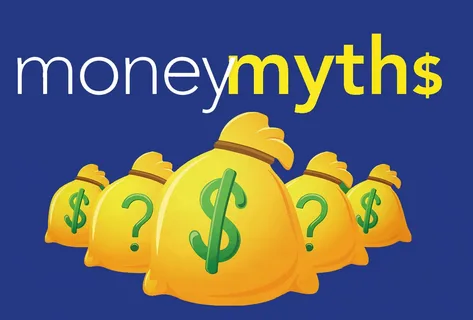In the modern world, where information and misinformation coexist, the financial decisions we make are often influenced by prevalent myths about money. These myths, subtly woven into our everyday life, can significantly impact our financial health. One of the most immediate concerns for many is managing credit card debt, a challenge that often stems from misconceptions about credit usage and debt management. Understanding and debunking these myths is crucial for financial well-being.
Myth 1: Credit Cards are Essentially Free Money Many view credit cards as a means to access funds they don’t have, treating them like a gift rather than a loan with obligations. This myth leads to a cycle of overspending and accumulating debt. However, the reality is starkly different – credit cards are a tool for building credit and managing cash flow, not for unchecked spending. The interest and fees can quickly accumulate, turning a small purchase into a significant debt and, in extreme cases, leading to seeking credit card debt relief.
Myth 2: You Must be Wealthy to Invest Investment is often seen as the playground of the rich, a myth fueled by stories of large stock market gains and significant real estate deals. However, this overlooks the world of micro-investing, where small, regular contributions can grow over time. Thanks to modern technology and financial tools, investing is more accessible than ever, allowing individuals with modest means to participate in the financial market.
Myth 3: Saving is Impossible on a Tight Budget This myth perpetuates the idea that saving money is exclusively for those with substantial disposable income. In contrast, saving is a habit that can be cultivated regardless of income level. It’s about prioritizing and finding innovative ways to reduce expenses. For instance, using energy-efficient appliances or meal planning to reduce food waste can free up small amounts of money that, over time, add up to significant savings.
Myth 4: Debt is Always Bad Contrary to popular belief, not all debt is detrimental. There’s a significant difference between high-interest credit card debt and a low-interest mortgage or student loan. The latter can be considered as investments in one’s future, potentially leading to higher earning potential or property ownership. Understanding the different types of debt and their potential benefits is crucial in making informed financial decisions.
Myth 5: Financial Planning is for Older Adults Many young adults postpone financial planning, believing it’s a concern for later in life. This myth overlooks the power of compound interest and early investment. Starting to save and invest early, even in small amounts, can lead to significant financial growth over time, much more so than starting later in life with larger amounts.
Myth 6: Renting is Throwing Money Away The long-held belief that renting is inferior to home ownership fails to account for individual circumstances. Renting offers flexibility, fewer maintenance responsibilities, and no property taxes, making it a sensible choice for many. In some cases, investing the money saved from not buying a house can yield a higher return than the property’s appreciation.
Myth 7: You Need a High Income to be Financially Secure Financial security is often associated with high incomes, but it’s more about how you manage your money. Individuals earning modest incomes can achieve financial stability through smart budgeting, saving, and investing. It’s the management of money, not the amount, that dictates financial security.
Conclusion Dispelling these myths is key to making sound financial decisions. It’s about understanding the nuances of financial management and recognizing that each individual’s financial journey is unique. By breaking free from these misconceptions, we can pave the way towards a more financially stable and secure future.





